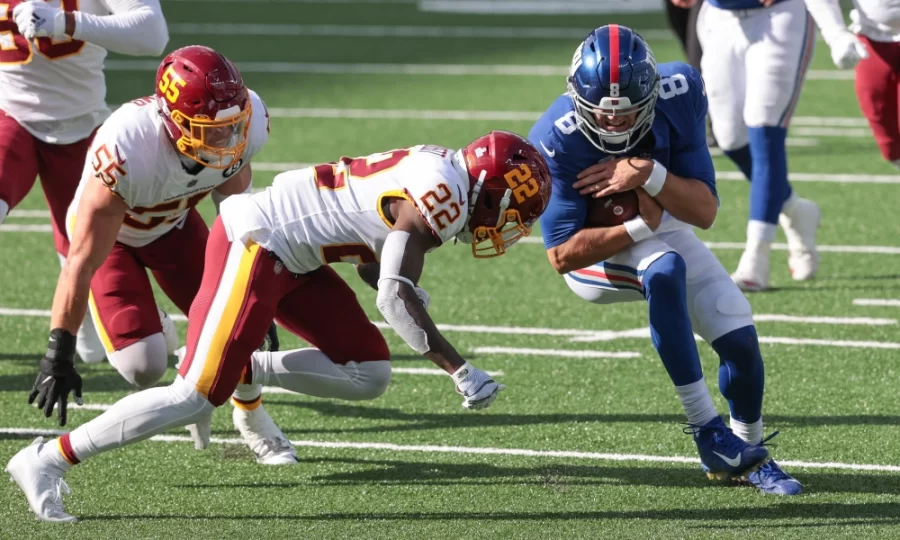In football, the center position makes contact with a defender on every single snap. Ex-Pittsburgh Steelers center Mike Webster, who played 13 straight seasons without missing a single snap, endured an estimated 70,000 blows to the head throughout his career.
The movie Concussion, directed and written by Peter Landesman, depicts the repercussions of these blows and chronicles Dr. Bennet Omalu’s groundbreaking medical work in his discovery of Chronic Traumatic Encephalopathy, or CTE.
‘Iron Mike’ represented everything the NFL looked for in a player—tough, hardworking and fearless. The Hall of Famer played 17 seasons in the NFL, played 245 career games and was a four-time Super Bowl champion. Thus the NFL wouldn’t admit that one of their greats actually suffered from playing football.
In the movie, Will Smith plays the role of Omalu. Smith effectively portrays Omalu’s thick Nigerian accent, exemplifying the many struggles he faces when the NFL pressures him to quit his research because of its threats to football. He does this while simultaneously trying to assimilate into American culture, become a citizen and start a family. Smith powerfully conveys Dr. Omalu’s conflicts.

The film immediately captivates viewers by depicting the troubled mindset of Mike Webster in the opening scenes. Dr. Omalu, a Nigerian-born forensic pathologist who lives in Pittsburgh, performed an autopsy on Webster’s body after he died of a heart attack Sep. 24, 2002. At first glance, Webster’s brain seemed perfectly normal. But after many hours of research, Dr. Omalu discovered that when a brain suffers numerous, direct injuries, such as Webster’s head-to-head collisions, tau proteins form around the affected area.
After many blows to the head, those proteins can overtake healthy brain cells, causing chronic traumatic encephalopathy, commonly known as CTE. Dr. Omalu ultimately found the same diagnosis in deceased NFL players Dave Duerson, Andre Waters and Justin Strzelczyk. The players who suffer from CTE live troubled lives full of depression, mixed emotions and suicidal thoughts. The film does an extremely good job of showing how severe the symptoms of CTE are, as he shows the players take all different kinds of drugs in an effort to cope with their crazy thoughts.
But when Dr. Omalu reveals his research about CTE to the NFL, the NFL tries to sabotage his research.
Another prominent character who helps Dr. Omalu in his dilemma with the NFL is Dr. Julian Bailes, a former Pittsburgh Steelers team doctor played by Alec Baldwin. Baldwin is compelling in his strong-willed demeanor. Bailes has to choose between siding with his NFL colleagues or with Dr. Omalu, showing the pressures on those with many connections to the NFL. Many other doctors and people with ties to the NFL were reluctant to support Omalu, fearing backlash from the largest sporting institution in the U.S.
The film depicts the NFL as made up of people who are business-oriented and aren’t interested in the health of former players. And so until Dave Duerson, a former NFL player who works for the NFLPA, takes his own life, the NFL chooses not to do anything about Dr. Omalu’s findings.
Concussion shows how the NFL erred in its handling of the negative outcomes that result from football head injuries. Moreover, the movie issues a strong message to the NFL: they must focus more on head trauma issues. This message hopefully will allow the NFL to correct its wrongs in the area of concussions and work on improving the game.
In fact, Omalu makes it clear that he doesn’t hate football and only wants an honest examination of the problems associated with head injuries. A popular theme throughout the film is the power and grace of football.
Every Sunday, Dr. Omalu’s wife watches football and remarks on the elegance of the game and the graceful way the ball moves across the field. Pittsburgh is a city that lives and breathes football, so the whole city revolves around the Steelers and unites to support them.
Football fans in the US should watch Concussion to understand the NFL’s mistakes in concealing and rejecting Dr. Omalu’s research. It shows that the NFL must accept the dangers of football and work towards making it a safer game.








The Listener • Feb 5, 2016 at 2:19 pm
in no way was this remotely racist
disappointed • Feb 3, 2016 at 6:22 pm
Ridiculously offensive article to all Africans.
Ezra Pine • Jan 5, 2016 at 8:34 pm
I’m sorry that you took offense at any aspect of the article. This was not my intent. I was merely trying to convey the skill that Will Smith brought to the role in conveying Dr. Omalu’s struggles.
Not ur friend • Jan 6, 2016 at 6:37 pm
Don’t apologize for offending people, apologize for incorrect and unethical journalism.
Ever been to Nigeria? • Jan 5, 2016 at 2:59 pm
this article says, “In the movie, Will Smith plays the role of Omalu. Smith effectively portrays Omalu’s thick Nigerian accent, exemplifying the many struggles he faces when the NFL pressures him to quit his research because of its threats to football.”
While I am dismayed you would make such a statement here are some reactions that sum it up better:
http://zikoko.com/gist/this-is-how-twitter-reacted-to-will-smiths-nigerian-accent-in-the-concussion-trailer/
http://www.okayafrica.com/news/will-smith-concussion-film-trailer-nigerian-accent/
Anonymous • Jan 5, 2016 at 8:30 pm
I meant no offense by this statement. I was merely trying to comment on the skill that Will Smith brought to the role.
I’m sorry for any unintended offense.